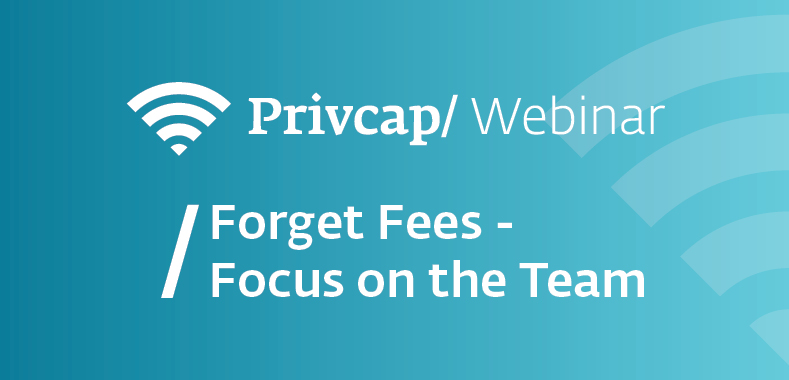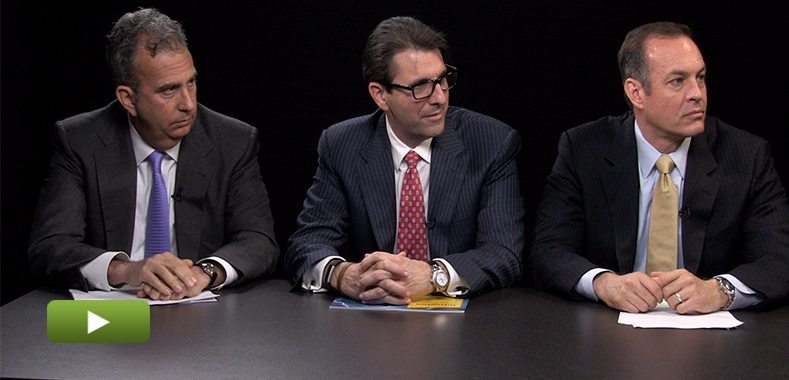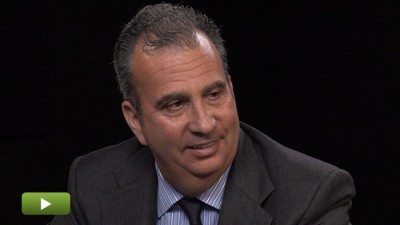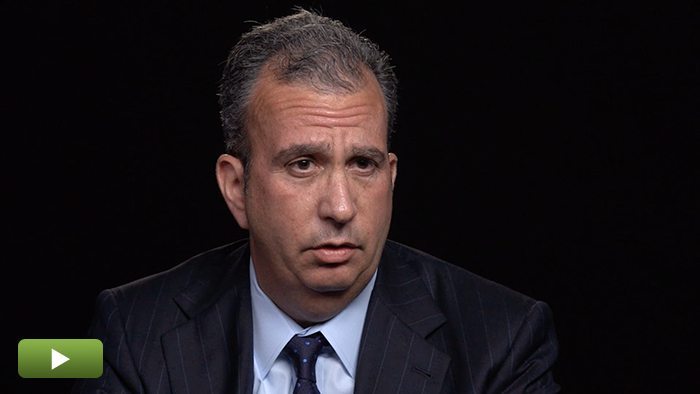Fund Admin Outsourcing is PE’s Future
With hedge funds largely outsourcing many aspects of fund administration, can private equity be that far behind? A panel of experts from Washington State Investment Board, EY and Gen II Fund Services discuss the pressures private equity firms face as they seek to scale, the huge information needs of LPs and the barriers to entrance in the fund administration business.
Transcript Download Transcript
Fund Admin Outsourcing is PE’s Future
PE’s Bold New Era of Transparency
David Snow, Privcap: We’re joined today by Steven Millner of Gen II Fund Services, Scott Zimmerman of EY, and Ian Cameron of the Washington State Investment Board. Gentlemen, welcome to Privcap. Thanks for being here.
Unison: Thank you, David.
Snow: We’re talking about the importance of transparency and infrastructure in the private equity business. One really important trend going on in private equity is the increased outsourcing of many fund-administration tasks to third parties. Steve, that’s your business, so can you help us look at private equity compared to other asset classes and where it is as far as a group of firms that outsource or don’t outsource?
Steven Millner, Gen II Fund Services: When we look at trends, we look at 40-Act funds, we look at hedge funds and then, we look at private equity. And there’s a lag between those asset classes. Right around the financial crisis in the Madoff situation, you saw hedge funds which largely used external administration go almost exclusively to an outsourced model. That effect is starting to ripple through in the private equity sector. If you look at Scott’s survey—the E&Y survey—it talks about how people think that about 30% of private equity funds today outsource. But, if you look at what’s projected going forward, it goes to 50% to 60% in the next five years. So, there’s clearly a trend towards outsourcing.
Scott Zimmerman, EY: Even within the survey—and we’re talking about eight or nine different functions defined within finance—tax compliance is something that’s outsourced. Fund accounting, regulatory, any kind of reporting to the extent that administrators have better control over their data and information that can help facilitate and make it easier on the fund finance groups. After the survey, as we talked about a bit before, we have round tables and it’s been interesting to see the change in attitudes over the last three years where private equity first said, “I don’t even want to talk about it” for the most part. Then you started to hear, “Well, maybe.” This year it’s more, “Yes, we would really like to understand a lot more about what they can do, their capabilities.” So, you’re going from, “I don’t really think it’s necessary” to “OK, let’s explore.” And to your point, now just in another three or four years, it should be much more than just exploring.
Snow: Ian, as a large limited partner, what is the case for private equity firms outsourcing their fund administration? Why would that be a net positive in your eyes?
Ian Cameron, Washington State Investment Board: I think it’s all the things we talked about. When you think about the structure, you can check the box on your internal controls, getting the certification you need for SSAE16 reports. But it’s all those things that allow us to quickly get there. Once you have confidence in a certain administrator, then it also limits the amount of work we have to do, too. So, if it’s centric to several difference administrators or one administrator, you can obviously just go there once and cover a lot of GPs with just one visit, which is helpful for us in terms of that diligence process. But, at the end of the day, if you’ve got a good reputable firm behind you, it really allows you to check all those boxes and be able to come back and say, “I’ve got my organizational structure and my ducks in a row.”
Snow: Let’s talk a bit about the size of private equity firms and the considerations there. Groups like Blackstone, Carlyle have massive resources to create very complex and very high-quality back offices and firm infrastructure, but how about a medium-sized firm? It must be a bit more challenging for groups like this to think, “Should I build it myself or should I let someone else do it and pay a fee?”
Millner: You’re right. If you look at the publicly traded private equity funds, by and large, they do their internal work without outsourcing. When you look at the groups in the middle, there’s a greater consideration to using outsourcing. The reason is that we’ve had a significant growth in the regulatory burden that’s affecting private equity funds, so you have a confluence of demands upon a sponsor and the sponsor now has to look and say, “Do I want to build something and I need to think about scalability and attracting talent? Or do I hand this off to somebody who makes it their business?” We’re seeing that decision and that process take place and it’s unfolding as we speak.
Snow: Scott, talk a bit more about scalability. A private equity firm, as a business, at some point finds it difficult to do everything in-house, right?
Zimmerman: Sure. And, even on the mega–firms, I think when you look at ratios of, say, investment professionals to finance, you actually see the ratios drop, meaning there are more finance people per investment. Yes, I think the big firms have the ability, but they’re also very siloed and they’ve gone and invested in so many different subclasses or different asset classes than private equity. It’s almost like a private capital/private debt kind of thing.
I think the next tier down is starting to think the same way. They need to grow assets. They want to generate fees. And, as you get more complex, without real technology in the market where you can go to the market and say, “Off the shelf, I’m going to pull this product, this product, this product. Put it together, and now I can scale.” It’s just not there. They wave the white flag and say, “Steve, can you help us?” So, I think scalability and the lack of technology moves directly to a group that can do it for you.
Millner: I think this surprised most folks. But if you really understand their asset class, you’ll find that the system that PE sponsors use is called Excel. It’s a spreadsheet-driven world we work in. If you think about spreadsheets, they’re very creative. You can do a whole bunch of things with them, but you can’t scale them and they’re very hard to protect against user error.
Cameron: The data requirements we have are only continuing to expand, so just getting that infrastructure in place is not enough. You’ve got to be investing in your technology to be able to keep up with—a lot of the pensions are bringing a lot of the management in-house. That’s increasing the demand. When we look at our own portfolio, the entire portfolio across all asset classes, the demand for information at a granular level—even within portfolio companies—is only increasing.
Snow: Is there a classic profile of a private equity firm that is on the fence about whether or not they should outsource? Steve, in your recent experience, what’s the firm that’s finally saying, “You know what? We have all this stuff in spreadsheets. We should probably think about finally getting some help.”
Millner: When I’m observing what’s currently going on, it seems to me that it’s a firm going through transition. Maybe they’re on Fund 3 or Fund 4. The senior management is starting to change and the CFO is starting to change. That new management that wants to continue the legacy of the firm is looking and speaking to LPs and realizing that they’ve underinvested in their back office in the past and they can’t continue to do so. So, they have a decision tree to look at and outsourcing becomes a very compelling part of that decision tree as new management evaluates the direction of the business.
Zimmerman: As the CFO becomes more and more of the individual who’s really running the operations of the business, they don’t have the time or the capacity. And they’ve got a problem with talent in the marketplace to fill those voids. It’s whether you’re big, small or medium. To the extent your role as a CFO is enhanced or increasing in visibility, you’ve got to have help.
Cameron: Look at our LPAs now: where you used to have a paragraph that discussed fees and how those were going to work and what they looked like, now you’ve got three, four or five pages. They’re becoming a thicker part of the document. So, when you sign up for that, you’re going to need an infrastructure that’s capable of producing that information and delivering it in a way that’s intuitively valuable for the LPs.
Zimmerman: I think the one resisting force there, David, is the quality of those administrators. I think there’s a spectrum. Steven’s firm is very highly regarded within the marketplace as folks that really know private equity.
Millner: In order to be a functional administrator today, you need size. You need capital to invest in your infrastructure. You need capital to address cyber-security. You need capital for talent—both to bring talent in and also to retain that talent.







